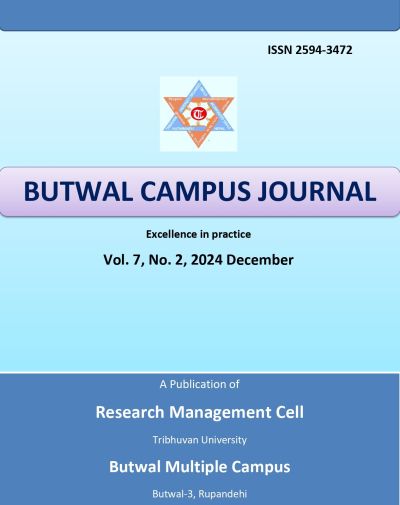Raising Good Governance through Digital Payment Systems: Insights from Nepal and India's UPI
DOI:
https://doi.org/10.3126/bcj.v7i2.73169Keywords:
Transparency, Accountability, Efficiency, Financial Inclusion, Framework, Digital divideAbstract
In the digital age, integrating technology into governance is essential for improving transparency, accountability, and efficiency. Digital payment systems have emerged as a key tool, enabling secure and traceable financial transactions while reducing reliance on cash. Nepal, with platforms like ConnectIPS and mobile wallets, is witnessing a rapid shift in how financial transactions are conducted, even in its most remote areas. Meanwhile, India’s Unified Payments Interface (UPI) has become a global example of how digital payments can promote financial inclusion, streamline public services, and reduce corruption. This study uses a comparative case study approach to examine the role of digital payments in enhancing good governance in Nepal. It draws insights from India’s UPI to analyze the potential benefits and challenges of adopting similar systems in Nepal. Challenges such as the digital divide, low digital literacy, and cybersecurity risks remain significant barriers. By addressing these obstacles, Nepal can utilize the transformative power of digital payments to create a more transparent and inclusive governance framework. This research highlights key findings and provides actionable recommendations for policymakers to maximize the impact of digital payment systems on governance.
Downloads
Downloads
Published
How to Cite
Issue
Section
License
Copyright is held by Research Management Cell, Butwal Multiple Campus

